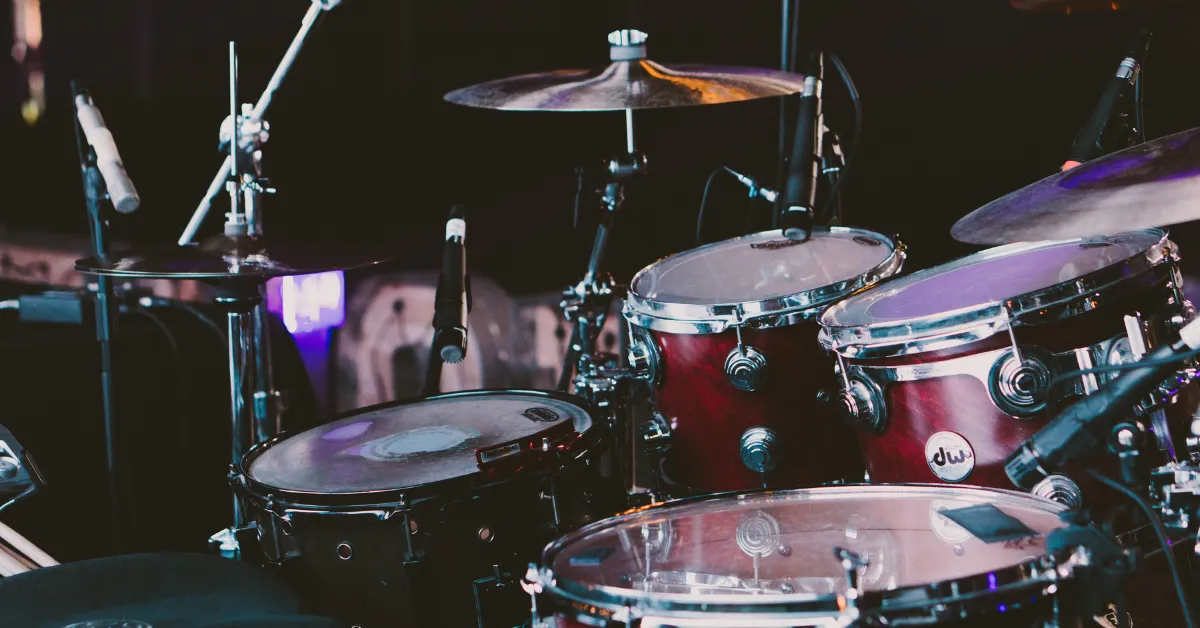Top Reasons to Learn Drums and How It Transforms Your Musical Skills

The rhythmic heartbeat of music often lies in the hands of a drummer. Whether it’s a thumping beat at a rock concert or the graceful cadence of Indian percussion, drums are the soul of music. While guitarists strum and vocalists sing, it’s the drummer who anchors the performance, providing tempo, power, and emotion. But beyond performance, have you ever wondered why learning to play the drums can be one of the best decisions of your life? Especially with India’s rich tradition of percussion instruments like the mridangam, dhol, tabla, and more, drumming is more than just sound—it’s an art form that speaks directly to the spirit.
In this blog, we will explore powerful reasons why learning to play the drums, including Indian percussion instruments, is not only fun but incredibly rewarding.
1. Builds Coordination and Motor Skills
Drumming requires simultaneous use of both hands and feet, making it one of the best activities for improving hand-eye coordination. Over time, drummers become more agile and accurate in their movements. Indian percussion instruments like the tabla and mridangam also involve intricate hand techniques that enhance fine motor skills. This benefit is especially important for children as it helps in developing their neural networks early on.
2. Boosts Brain Function
Scientific studies show that drumming enhances cognitive performance, memory, and even IQ. When you play the drums, you’re constantly counting, listening, and coordinating—actions that stimulate multiple parts of the brain. Indian classical drumming, with its complex rhythmic cycles or taalas, is especially brain-engaging and sharpens mental acuity.
3. Great Physical Workout
Playing the drums is a high-energy activity that can burn up to 600 calories an hour. It works the upper body, core, and even legs, especially in full drum kits and traditional Indian setups like dhol or chenda, which are played while standing or moving. Regular drumming helps improve stamina and cardiovascular health.
4. Reduces Stress and Anxiety
There’s something incredibly therapeutic about striking a drum. It helps release endorphins and reduces cortisol levels, lowering stress. Indian percussion, often used in devotional settings and meditative practices, naturally calms the mind. Many musicians report a deep sense of peace after a drumming session.
5. Enhances Musical Understanding
Drummers are the timekeepers of any ensemble. Learning to play the drums helps understand rhythm, timing, and musical dynamics more deeply. Indian percussion instruments, with their structured taals and improvisation, build a strong foundation in music theory.
6. Improves Social Skills
Whether you’re joining a school band, performing at a temple event, or jamming with friends, drumming is a highly social activity. It teaches teamwork, listening skills, and how to support other musicians. Participating in cultural festivals and Indian classical music groups fosters community and friendships.
7. Fosters Discipline and Patience
Drumming is not learned overnight. It requires regular practice, patience, and dedication. Indian percussion, especially tabla and mridangam, demands rigorous training and years of practice to master. This discipline extends to other areas of life as well, such as school, work, or relationships.
8. Encourages Creativity and Self-Expression
Drummers have the freedom to create their own rhythms and fills. In Indian classical music, percussionists often engage in on-the-spot improvisation, showcasing their creativity. Learning to play the drums allows you to express emotions and tell stories without words.
9. Cultural Connection and Heritage
Learning Indian percussion instruments like the tabla, dhol, mridangam, and pakhawaj connects you to India’s vast musical heritage. Each beat carries history, regional tradition, and spiritual meaning. For those growing up in modern India or abroad, learning these instruments fosters cultural pride and identity.
10. Versatile Instrument with Career Potential
Drummers are in high demand in music bands, classical ensembles, film recordings, and live performances. Whether it’s Western rock drums or Indian instruments, the skill opens many career paths. Teaching, composing, performing, and studio sessions are viable income-generating options.
11. Accessible for All Ages
From toddlers with toy drums to adults in their 60s, drumming is accessible for everyone. Many Indian music schools offer percussion classes for all age groups. Even a simple djembe or hand drum can be a great starting point.
12. Easy to Start, Hard to Master
You don’t need expensive gear or formal education to begin your drumming journey. Start with basic hand drums like tabla or frame drums. As you grow, explore full kits and advanced percussion techniques. The journey is lifelong and always evolving.
13. Strengthens Listening and Timing
Playing with a metronome or alongside other musicians sharpens your sense of time. Indian percussion emphasizes rhythmic precision, where even a slight variation can change the mood of a performance. This training enhances musical sensitivity and timing.
14. Supports Emotional Healing
Drumming is often used in music therapy for emotional healing and trauma recovery. In Indian spiritual traditions, rhythmic chanting and percussion are used to elevate consciousness and promote well-being.
15. Helps with ADHD and Autism
Studies have shown that rhythmic drumming can help individuals with ADHD and autism improve focus and social interaction. The structured, repetitive nature of percussion instruments can be both grounding and stimulating.
16. Perfect Companion to Other Instruments
A drummer often collaborates with singers, guitarists, and keyboardists. Learning the drums makes you a more rounded musician. Indian percussion complements vocal and instrumental performances, especially in fusion and classical concerts.
17. Makes You Stand Out
In a world full of singers and guitarists, being a skilled percussionist sets you apart. Indian percussionists are especially valued in cultural programs, religious events, and global fusion concerts. Your unique talent can make you the highlight of any ensemble.
18. Personal Satisfaction and Joy
Few things match the joy of locking into a groove and feeling the rhythm flow through your body. The sense of accomplishment after nailing a complicated taal or completing a performance is deeply satisfying.
CONCLUSION
Learning to play the drums—whether it’s a Western drum kit or a traditional Indian instrument like the tabla or mridangam—is one of the most enriching musical experiences one can have. It enhances your mind, body, and soul while offering social, cultural, and professional benefits. In a culturally vibrant country like India, mastering percussion opens the door to classical, devotional, and contemporary music landscapes.
At NMS Musicals, we offer a comprehensive range of musical instruments, including percussion, string, wind, and keyboard instruments. Our services encompass sales, expert servicing, and the manufacture of leather instruments. Explore our diverse collection and find the perfect instrument to suit your musical needs.
Visit our website to browse our offerings: nmsmusicals.in
For a closer look at our products, check out our shop page: nmsmusicals.in/shop
Stay connected with us through our social media channels:
- Facebook: https://www.facebook.com/nmsmusicalinstruments/
- Instagram: https://www.instagram.com/nmsmusicals/?hl=en
- YouTube: youtube.com/@nmsmusicals
Our shop locations are:
- Puducherry: 149, Perumal Koil Street, Heritage Town, Puducherry, 605001.
Map Link: https://maps.app.goo.gl/ejDwBBFEJmd3szxk7 - Chennai: No: 1, 1st Floor, Kandigai Street, TVS Nagar, Korattur, Chennai – 600076.
Map Link: https://maps.app.goo.gl/7oXmB6X7KQsqeuuw9
For inquiries, contact/Whatsapp us at 9500663895 or email us at laxman.m89@gmail.com.
Discover the world of musical instruments with NMS Musicals today!
For a visual overview of our percussion instruments, watch the following video:


 Cart is empty
Cart is empty 
Leave A Comment
You must be logged in to post a comment